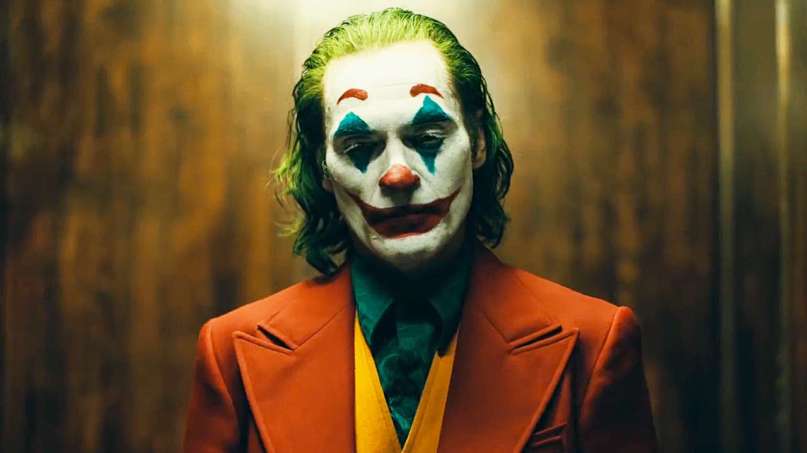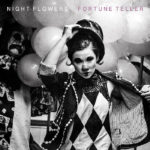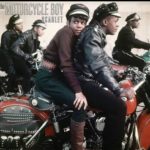When I first heard a film exploring the origins of Joker had received the greenlight from Warner Bros’, my instinctive reaction was that any such movie was completely unnecessary. I’ve always felt that most great villains, from Joker, to Lecter, to Magua, to Anton Chigurh, work best when they arrive fully formed, and giving them origins stories tends only to dilute their impact (see Hannibal Rising, and Alan Moore’s Killing Joke, which clearly provided a lot of inspiration for this film). Knowing Todd Phillips was to write and direct the project moved it from the status of unnecessary to something to be avoided at all costs. The man best known for the Hangover trilogy, taking on arguably the greatest villain in both comic book and movie history? Fuck off.
However, the casting of Joaquin Phoenix was enough to at least pique my curiosity. Not only one of the greatest actors of his generation, but famously picky about his projects, turning down huge financial incentives to appear in Marvel movies on at least two occasions, if he saw something in the script, then it was probably at least worth watching.
Set entirely outside the continuity of any previous Batman/Joker/DC films, Phillips transposes the character to a 1970’s Gotham where the garbage is piled high due to strikes, ‘super rats’ are running amok, and seemingly everyone in the city is on the brink of violence or collapse. This depiction of New York –ahem, sorry, Gotham- is a vivid one, arguably the best rendering of the city, recalling Frank Miller’s classic Batman: Year One and many of Jeph Loeb’s Batman runs like The Long Halloween and Hush.
As well as these comic book touchstones, the other clear influences are Scorcese’s works of the 1970’s such as Mean Streets, Taxi Driver and, in particular, King Of Comedy, as well as other notable films of the era, such as Network and Midnight Cowboy. In fact, while there’s nothing wrong with wearing your influences on your sleeve Joker is so referential, and reverential, to these classics (and 70’s cinema in general, even using the famous Saul Bass WB logo) that at times it felt less like influence than all-out pastiche.
Is it an ‘incel manifesto’ as some have suggested? No, not really. But it will unavoidably strike a chord with them. I found it impossible to watch the film, and consider this aspect of it, without doing so in the context of Todd Phillips recent comments about how the whole film was a reaction to ‘woke culture’, and how you simply can’t be funny anymore in these enlightened times.
Well, there are still lots of edgy stand-ups being very funny in this culture, and lots of people making films that are both funny and challenging, so does Phillips just mean he can’t be funny? Well, Old School aside, Phillips has never been funny, all his other work being driven by an undercurrent of misogyny and racial stereotyping. So if woke culture stops him making the kind of comedy that relies on these tired tropes, then I’m all for it. So is Phillips’ intention to trigger the libtards with a film about a serial murdering loner? To what end? If that is genuinely his main motivating factor, as he has claimed, then his intentions can only be pretty unwholesome ones. Phillips has made a career of appealing to the basest instincts of his audience., and it’s valid to question just which base instincts he’s appealing to here.
The fact that Joker/Arthur kills only nasty city banker types, businessmen, powerful people or those who’ve treated him badly also felt like a bit of a cop-out to me. Joker is a complete sociopath and psychopath who kills indiscriminately. If you’re going to explore this character, and I realise this is an origins film, and any potential future films may plan to do this, at least be brave about it, and challenge the audience to sympathise/condemn him when he kills people who don’t ‘deserve’ it.
The film has drawn some criticism also for its depiction of mental illness leading to violence. I understand this, and think the handling of that facet is heavy-handed at best. But, in its defence, this is not an issue movie, it’s a character study, and focuses on one individuals descent from mental illness to murder.
Central to the film, of course, is Phoenix. He’s barely off screen for just over two hours, and is utterly mesmerising throughout. Just as he did with You Were Never Really Here, and as Christian Bale did in The Machinist, Phoenix uses his transformed body as an amazing physical canvass, twisting, contorting with a reptilian movement that is grotesque and captivating. Whether striking poses in front of his mirror, hunched over by a condition which causes anguish to manifest as cackling laughter, or dancing down some steps to the sound of Gary Glitter (a bizarre and dodgy choice), his presence is horribly hypnotic throughout. He handles some clunky dialogue “I used to think my life was a tragedy, but now I realise it’s a comedy” admirably, and even manages to drop in an old Bob Monkhouse gag. I doubt any other actor could have even come close to making the character work, but Phoenix carries the movie. It’s his best work since The Master, and he probably deserves to be the second actor to win an Oscar for playing the role. Is it the definitive take on it? You could certainly make a very strong argument that it is, but for me, Heath Ledger’s anarchist terrorist remains the benchmark.
Ultimately, Joker is a good film, but no more than that. I don’t think it’s a classic, I don’t think it’s definitive, though general audience reaction seems to put me in the minority with this view. However, that iconic, virtuoso performance drags the film up several notches from a film we simply didn’t need, to one that deserves to be seen, and will undoubtedly live long in the memory.




